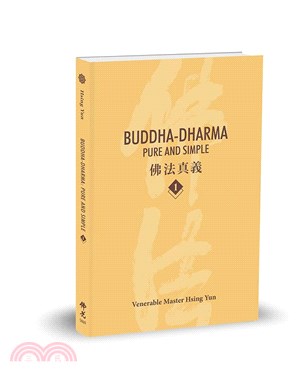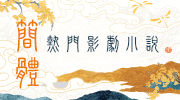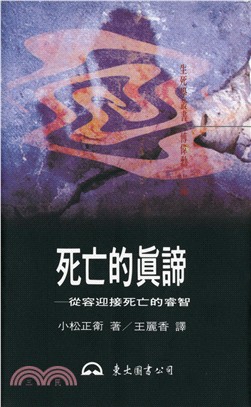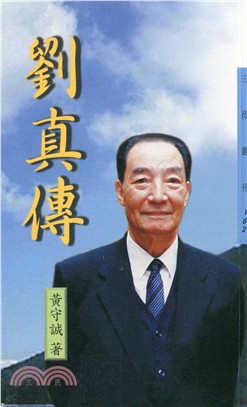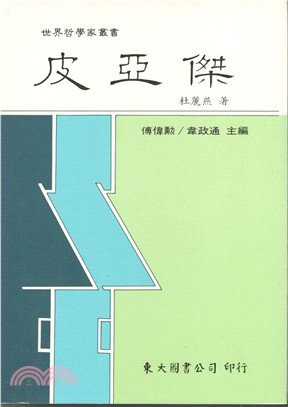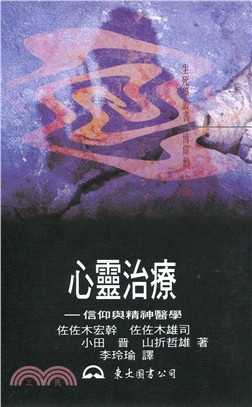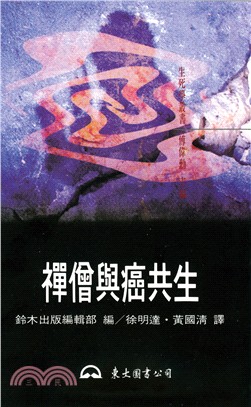商品簡介
This first installment contains 52 articles on the topics of faith and doctrine, laying the foundation for readers to learn and practice in the Buddha’s footsteps. Moreover, it also serves as an inspiration for practitioners to strive for Buddhahood and believe that “I am a Buddha.”
作者簡介
序
Preface
The metaphors of three birds flying in the sky and three animals crossing the river have frequently been used in the Buddhist sutras to depict the notions of distance and depth perceived differently by different beings. Though the concept of distance within the vast sky is inherently non-existent, at the flap of their wings, an eagle, a pigeon, and a sparrow would span distances ranging from tens of miles to only a couple of miles, and merely a few yards depending on their varying abilities. As a result, the idea of distance is very different to these three birds.
In the same way, when an elephant, a horse, and a rabbit cross the river, the elephant’s enormous body enables it to tread across the riverbed and reach the far shore without difficulty, while the horse and rabbit, unable to reach the bottom of the river, will struggle as they swim across the river.
The Buddha-Dharma is like the deep ocean or the vast sky. While people may hold opinions on the differences in levels, there is no saying who is right or wrong, because different levels of faith and spiritual aptitude mean different levels of knowledge. There is no need to think highly of oneself. Which one are you when crossing the river? The elephant? The horse? Or the rabbit? Which one are you in the sky? The eagle? The pigeon? Or the sparrow? One must constantly self-evaluate.
The Buddha’s teaching is kind, compassionate, wise, and equal. However, how can we know we have truly understood the profundity of the teaching?
If one wants to know the length of a fabric or the weight of an object, one must measure or weigh it. Similarly, we need to measure and weigh the Dharma we think we have understood to know the depth of our faith. Otherwise, we are like a kindergartener who forcefully claims to be a university student, revealing our ignorance to everyone.
Is it possible for today’s Buddhists to explain the true meaning of Buddhism without going against the original intents of the Buddha? For example, the concept of heaven and hell is to encourage people to transcend and not regress in their spiritual cultivation. However, some ignorantly use the concept of hell to inflict fear upon devotees. Why not use the goodness of heaven as encouragement for the people?
There is also the issue of being grateful for the contribution and support devotees give to Buddhism. Often people say, “Amitabha Buddha will be grateful for your contributions.” Why are we asking Amitabha Buddha to help us express our gratitude? How can we push this responsibility away? Are we not the ones who should repay this kindness and contribution?
Suffering, the fundamental teachings of Buddhism, is a concept that should motivate us to endure hardships, to be hardworking, to train ourselves through austerities because adversity makes us stronger and better. Even a student needs to undergo a decade of education to achieve success and recognition. Hence, suffering makes our lives more meaningful. As the saying goes, “Out of the worst of the worst pains emerges the best of the best people.”
Buddhists today, however, often exclaim, “Suffering! Suffering! Live no more! Pass away now! Pray to pass away now!” This is not the reason why the Buddha expounded the truth of suffering. By properly understanding suffering, it pushes us to transcend and be liberated from it. Have these people not been giving the wrong interpretations?
For thousands of years, people think the Buddhist term “emptiness” or the saying “the four elements are empty” means that nothing exists, that there is nothing to possess, and that everything is empty. As Dharma propagators, how can we elevate people’s faith with this nihilistic and ignorant kind of view?
Emptiness is meant to be constructive; with emptiness comes existence. For example, where would you sleep if there are no empty rooms? Where would you work if there is no empty desktop to work on? Where would you build a house if there is no empty land? Where would you put your money if your pockets are not empty? How could you survive if your stomach is not empty? Emptiness is so good, so wonderful! So why explain emptiness as nihilism? Emptiness is meant to be full of action, potential, and success.
The same goes for the concept of impermanence. Impermanence is wonderful because it means that nothing is fixed; we can thus change, improve, and transcend. Situations can become better, more wholesome, and beautiful. So why make it sound like everything in this world is coming to an end when we explain impermanence? Why make people feel so hopeless? Impermanence is a beacon of hope for Buddhists to learn about the Middle Way. We have failed to attain the true meaning of Buddhism and thereby misunderstood the intentions of the Buddha. Thus, we must research and restore the true meaning of these Buddhist teachings, and propagate them.
For over two thousand years, the Buddha has carried the indignity of those who have been propagating deviant and false views, going against his intents, teaching the Dharma through misunderstanding, superstition, and skewed perspectives, all done in his name.
Take the practice of giving as an example. Sometimes, giving others a phrase, a smile, or a service are all acts of giving. However, today’s Buddhism explains giving in terms of a monetary donation. The practice of giving does not only mean we ask others to give, but we should be the ones who are willing to let go and offer.
Upholding precepts is another cultivation on the path of learning Buddhism. However, it is usually spoken from the perspective of telling others to uphold and follow. What about our actions, minds, and speech? Are they following with the Dharma? If we do not have a painful sense of remorse, how can we improve as Buddhists?
In An Inspiration to Give Rise to the Bodhi Mind, Venerable Sheng’an said, “The main gate for entering the Path is to first give rise to aspirations.” To give rise to aspirations means to have right faith and right view. Simply put, the way to practice Buddhism is to cultivate loving-kindness, compassion, joy, and equanimity, the Four Means of Embracing, and the Six Paramitas. However, today, we teach devotees that the practice of the Six Paramitas consists only of offering incense and venerating in the temple, believing that the act of donation can eradicate calamities. Therefore, Huineng the Sixth Patriarch admonished in the “Gatha of Formlessness”, “Attaining buddhahood does not come from giving money.” However, how many Buddhists have ever taken in the Sixth Patriarch’s teachings?
We need to raise the issue of correcting erroneous views about Buddhism so that the true meaning of the Buddha will not be lost, and enhance deeper and proper understanding of the Buddha’s original intents. Take the practice of life-releasing as an example. To hold a life-releasing ceremony, they first must catch fish and birds, and who knows how many lives were killed in the process? So, for those who hold a life-releasing ceremony for longevity, how can they live a long life?
There are also people without the right understanding of the law of cause and effect, thinking that becoming vegetarians makes them healthy, or praying to the Buddha leads to the acquirement of wealth and fortune. This would be going against the law of cause and effect. There are relative causes and effects for the accumulation of wealth, health, and faith. How can we expect to harvest beans when we planted melons?
Some people deceive with deeds such as acquiring good fortune by being the first to strike the bell or offer incense on Chinese New Year, turning these activities into superstitions that are not in accord with the Dharma. These people do not understand that the sound of the bell is only to alert us to do good, and the burning of incense is an act of offering to the Buddha and should not be done for profit. Moreover, various practices of fortune-telling focus only on praying for wishes to be fulfilled, instead of focusing on Buddhist cultivation. How can these acts be in accord with cause and effect?
What about the geomantic principle of feng shui? Everything has its own principle. For example, there are principles for social interaction, principles for relationships, and principles of material objects. Of course, the geographical environment has its principle. However, geomancy should not only be about searching for the best feng shui for good luck. If your living environment has good air circulation, is hygienic, is balanced with an open view, then it is already in the best geomantic position. Just look at Xuankong Temple (lit. Hanging Temple) in Shanxi, Mainland China. Do you think the location can be deciphered with geomancy?
Buddhism talks about the Eight Groups of Heavenly Beings. Where is heaven? What are the eight groups? We can describe them as different ethnic groups, instead of heavenly gods and armies.
It is said that the Buddha was born from the right flank of his mother. Did anyone witness this? Why attach so many far-fetched legends to the Buddha? What about the Buddhist Councils? There are always people with ulterior motives that include apocryphal sutras and commentary into the Buddhist canon, all under the name of the Buddha.
Buddhism has always been mocked as a polytheistic religion because of the many bodhisattvas and arhats who exist. Moreover, most of these figures are only mentioned in the sutras and are not real historical figures. Those with historical references such as Nagarjuna, Asanga, and Vasubandhu are truly acknowledged. For those with no historical references, who were their parents? Where did they grow up? We need not deny them. Rather, we can consider them as manifestations of the Buddha.
Why not place the focus of the faith on the Buddha instead? Why the need for so many deities such as the god of wealth, god of the city, god of the hearth, goddess of birth, and the god of love? We say that gods created humans, but humans also created gods. Buddhism differs from other religions in that the Buddha was an awakened human being. He had a historical background, he truly was a human being, not gods and goddesses that arose from imagination or hearsay. Therefore, the Buddha is the greatest awakened one. Why do Buddhists not return to the Buddha his original face?
Hapless Buddha! For two thousand years, he has been shrouded with the coat of superstition and obscured by the masks of deities and ghosts by the so-called devotees. It is a great pity that the Buddha should lose his original identity.
For example, Buddhism talks about the Four Immeasurable Vows so that we can make vows and practice them. But today, Buddhists only talk the talk, they dare not walk the walk. If no one practices, what use is there for the Four Universal Vows?
Another example is that the Buddha taught the Six Paramitas so that we understand these as the ways to practice the Bodhisattva Path. The paramitas of generosity, precept, patience, diligence, meditative concentration, and prajna wisdom are practices of delivering self and others. However, monastics today hold others to the standard of the Six Paramitas, yet they themselves do not give. They wish only to receive. Resultantly, the devotees are the ones who get delivered, while we are still stuck on the other shore. What to do? Monastics go through the teachings of the Buddha for the sake of finding ways to receive gains and benefits. The development of this type of perverse thinking and action can only be subject to the future ruling of the law of cause and effect. There is no law today that ensures the Buddha’s teaching is exercised according to his original intents.
The foremost practice in this world is the Noble Eightfold Path. In the past, foreigners from the Western regions tried to explain the Noble Eightfold Path, hence the coining of the term hú shuō bā dào. However, this term has become an insult for people talking nonsense. How can we answer to the people from the Western regions?
Between the Sui and Tang Dynasty, some young practitioners studied with eminent Buddhist masters. For a time, they either studied under Chan Master Mazu in Jiangxi, or Chan Master Xiqian in Hunan. The term “roaming Jianghu” refers to their deeds of traveling and learning. However, such a meaningful term has come to mean vagabonds performing their monkey tricks. Who will be the one to correct this?
In Buddhism, we also see sutras such as the Vimalakirti Nirdesa Sutra and Srimaladevi Simhanada Sutra. Are Layman Vimalakirti and Lady Srimala not lay Dharma teachers? Why do we think that the Age of Declining Dharma is near when lay professors and devotees are teaching the Dharma? This obstructs many outstanding Buddhists from propagating Buddhism. Does fault not lie with those who keep promoting these kinds of deviant sayings?
Another example is the term “eternal life.” Originally, this Buddhist term means that life does not end in death but continues in the cycle of samsara. However, when Christians promoted that believers will have eternal life, Buddhists were afraid to use this term. Another term is “savior.” The Buddha truly is a savior, for he came to this world to deliver all beings. However, because Christianity proclaimed Jesus Christ the savior, Buddhism was afraid to call the Buddha a savior. Such beautiful terms are adopted by other religions, while the Buddha becomes associated with improper faiths, miraculous and ghostly incidents, as well as deviant thoughts and views.
The Vinaya notes that should a person “handle alcohol, one will be reborn without hands for five hundred lifetimes.” How can such a serious punishment exist? Which eminent master established this precept? This person did not understand the original intents of the Buddha and chronicled such a deviant saying due to improper understanding and lack of common sense. Moreover, on the issue of the Ten Sramanera Precepts, research should be conducted on how many Buddhist elders truly uphold them. These precepts cannot even be fully upheld by senior monks, how can we expect newly tonsured sramaneras to uphold them? Is this not nonsensical?
On the term the “Eight Garudharmas,” from my understanding, the Buddha promoted equality, as can be seen in the saying, “When beings of the four castes leave the householder's life, they all together join the Sakya clan.” So, how can the Eight Garudharmas promote gender inequality? Which eminent master established these precepts and makes people uphold them in the name of the Buddha? In Buddhism, taking refuge shows the spirit of democracy and upholding the Five Precepts signifies freedom. The Buddha advocated equality among the Four Groups of Disciples. Why not combine the wonderful Dharma with today’s universal values of freedom, democracy, and equality?
In the Buddhist sphere of today, numerous people claim this or that are the words of the Buddha. However, were they truly spoken by the Buddha? On the contrary, how can we claim that this and that were not spoken by the Buddha? Whatever the Buddha did say and do, we will practice it as the Dharma teaching. We now advise others to practice as the Buddha did, to learn from the Buddha, to be a buddha, to believe that “I am buddha.” However, we must be careful not to wrong the Buddha and use his name to instruct while still clinging to our attachments and deviant views. Such actions shall bring serious consequences.
Today’s Buddhists have become volunteers for Buddhism. They offer to protect their faith. They embrace Buddhism. But, what has Buddhism given to these devotees in return?
Once, when I was presiding over a Taking Refuge and Five Precepts Ceremony, a devotee refused to take the precepts out of fear of taking the precept of no lying. It was because he had heard about the story of a Chan Master who was reborn as a fox for five hundred lifetimes from having claimed that great practitioners are “not subjected to karma” when he had meant that they too were “subjected to karma.” This devotee was terrified that he might lie. I believe that when other Buddhists hear of his reason, they would dissuade him from taking the precepts.
Instead of worrying about lying, one can choose to practice Right Speech. Once there was a Buddhist who owned a textile store, and when customers wanted to buy a piece of cloth, they would ask,
“How much for a foot of fabric?”
“Five dollars.”
“Does the color fade?”
To sell the cloth, he would lie and say, “No, it doesn’t.”
Later, I suggested that he could say, “The five-dollar fabric fades easily, but the eight-dollar one does not.” Due to the honorable reputation he gained from being honest, his business boomed, which allowed him to build an establishment. Dharma brings goodness to all. My only concern is, why do people not positively explain Buddhism so devotees can receive the benefit of the Dharma?
The Buddha-Dharma: Pure and Simple is a series of nearly 300 topics that address my understanding of the subjects that I encounter daily. The problems confronted by Buddhism lie deeper. I just hope some determined people will reassess Buddhism as a whole, and return to Buddhism its original meaning so that the true teachings of the Buddha can pervade in this world.
Certainly, as Buddhism spread, it has evolved according to the cultures, languages, traditions, people, and climates of different geographical regions. Thus, skillful means required to enhance the process of dissemination have certainly become a matter of fact.
In Chinese Buddhism, only succeeding generations of Chan Masters still possessed some Right View and understood some of the Dharma. Few people continue to research and propagate the true Dharma that other schools taught-for example, the “Dependent Origination and the Middle Path” of the Three Treatise School. As the saying goes, “Deviant faiths arise when right faith declines.” I intend for this book to be a catalyst for all to think outside the box. Should any ideas presented in this book sound incomplete, I sincerely apologize. My humble hope is only that it mirrors the intentions of the Buddha so that all may reassess the true meaning of the Buddha-Dharma. I am grateful and humble accept any understanding and comments that reflect my intentions.
Hsing Yun
May 2016
Founder’s Quarters, Fo Guang Shan
目次
Translator’s Introduction
Preface
1. Faith
2. Thus Have I Heard
3. Listen Mindfully
4. Listening, Contemplation, and Practice
5. Taking Refuge in the Triple Gem
6. Upholding the Five Precepts
7. Understanding Precepts
8. Four Noble Truths
9. Noble Eightfold Path
10. Impermanence
11. Suffering
12. Emptiness
13. Non-self
14. Causes, Conditions, and Effects
15. The Meaning of Cause and Effect
16. Law of Cause and Effect Across the Three Time Periods
17. Karmic Rewards and Retributions
18. Twelve Links of Dependent Origination
19. Metaphors of Cyclic Existence
20. Six Sense Organs
21. Metaphors of the Mind
22. On Souls
23. Eight Winds
24. Remorse
25. Loving-Kindness and Compassion
26. Aspiration
27. Vow
28. Generosity
29. Precept
30. Patience
31. Diligence
32. Meditative Concentration
33. Prajna Wisdom
34. Who is the Buddha’s Mother?
35. Four Immeasurables
36. Four Universal Vows
37. Ten Vows of Samantabhadra Bodhisattva
38. Four Means of Embracing
39. The Uniquely Honored One
40. Ten Names of the Tathagata
41. Honored One Among Two-Legged Beings
42. Amitabha Buddha
43. Human Deification
44. Six Points of Reverent Harmony
45. Field of Merit
46. Empowerment and Deliverance
47. Four Dharma Realms
48. One is Many
49. Dharma Abode
50. Awakening
51. Rely on the Self, Rely on the Dharma
52. Dedication of Merit
Notes
Index
書摘/試閱
Faith
Religious faith is regarded by the Chinese as a way of receiving blessings through prayer. Most Buddhists too, also fail to comprehend that true religious faith is built upon selfless compassion and detachment from form. Most do not realize that religious faith is based on right view, honesty, righteousness, and selfless dedication to helping others.
Speaking of faith, people often advocate the belief of “having a good heart is enough, and there is no need for religious faith.” However, why would any good heart reject religious faith? There are also people who take pride in being areligious and say, “I don’t believe in any religion. I have no faith.” However, when faced with adversity such as a business failure, a disappointing relationship, an existential crisis, or when tormented by pain and sickness, people naturally seek religious support. In particular, when a death in the family occurs, people often still reach out to a monastic to preside over the funeral. Thus, it can be said that the issues of life and death is not separate from religious faith.
Sima Zhongyuan, the renowned writer, once described himself during a public lecture as “a Buddhist at heart” despite being Catholic. He said that, in China, Buddhism is in everyone’s hearts regardless of their religious beliefs. With the custom of chanting Amitabha Buddha’s name or praying to Guanyin Bodhisattva in times of sickness and adversity handed down for thousands of years, it can be said that Buddhist faith is an inherent part of Chinese culture.
In fact, it matters not to the buddhas and bodhisattvas whether one believes in them or not. To them, they gain and lose nothing. However, it would be a true pity if a person lacks faith in themselves. Self-doubt in one’s ability, knowledge, and understanding all arise from a lack of self-belief.
A person who has faith in themselves is capable of committing wholesome deeds and has the strength to help others. Moreover, they are able to discern the wholesome from unwholesome and believe in their own capability and potential. Would that not be a meaningful life?
Certainly, the levels of faith can be likened to a school system that includes a primary school, secondary school, and university. Just as students complete their grade levels sequentially, faith has its own increments, beginning with a basic understanding and gradually progressing with each step.
Regarding the different levels of faith, I once said, “No faith is better than wrong faith, blind faith is better than no faith, and right faith is better than blind faith.” The basis of any religion should be established upon right faith that allows us to reap immeasurable benefits. Not only should one develop right faith, but one should also believe in a religion that allows one the freedom to do so. Particularly, it is best for everyone to have confidence and faith in themselves. Buddhism teaches that the most important faith is faith in oneself, to believe in one’s potential to attain Buddhahood and to be a good person. As such, is it not important to have faith in oneself?
Faith is like an ocean, would it not be wonderful to have a heart as boundless as the ocean? Faith is like treasures deep in the mountains. Is it not so, that the beautiful virtues of wisdom, repentance, benevolence, and righteousness that lie in one’s heart, also happen to represent faith? No matter who you are, do admit that you too have faith! Only with faith can life be whole and complete. Only with faith can spirituality and goals be sought. It is only through faith that transcendence and a greater self be found. Only in this way can one succeed in the future.
主題書展
更多書展本週66折
您曾經瀏覽過的商品
購物須知
為了保護您的權益,「三民網路書店」提供會員七日商品鑑賞期(收到商品為起始日)。
若要辦理退貨,請在商品鑑賞期內寄回,且商品必須是全新狀態與完整包裝(商品、附件、發票、隨貨贈品等)否則恕不接受退貨。




